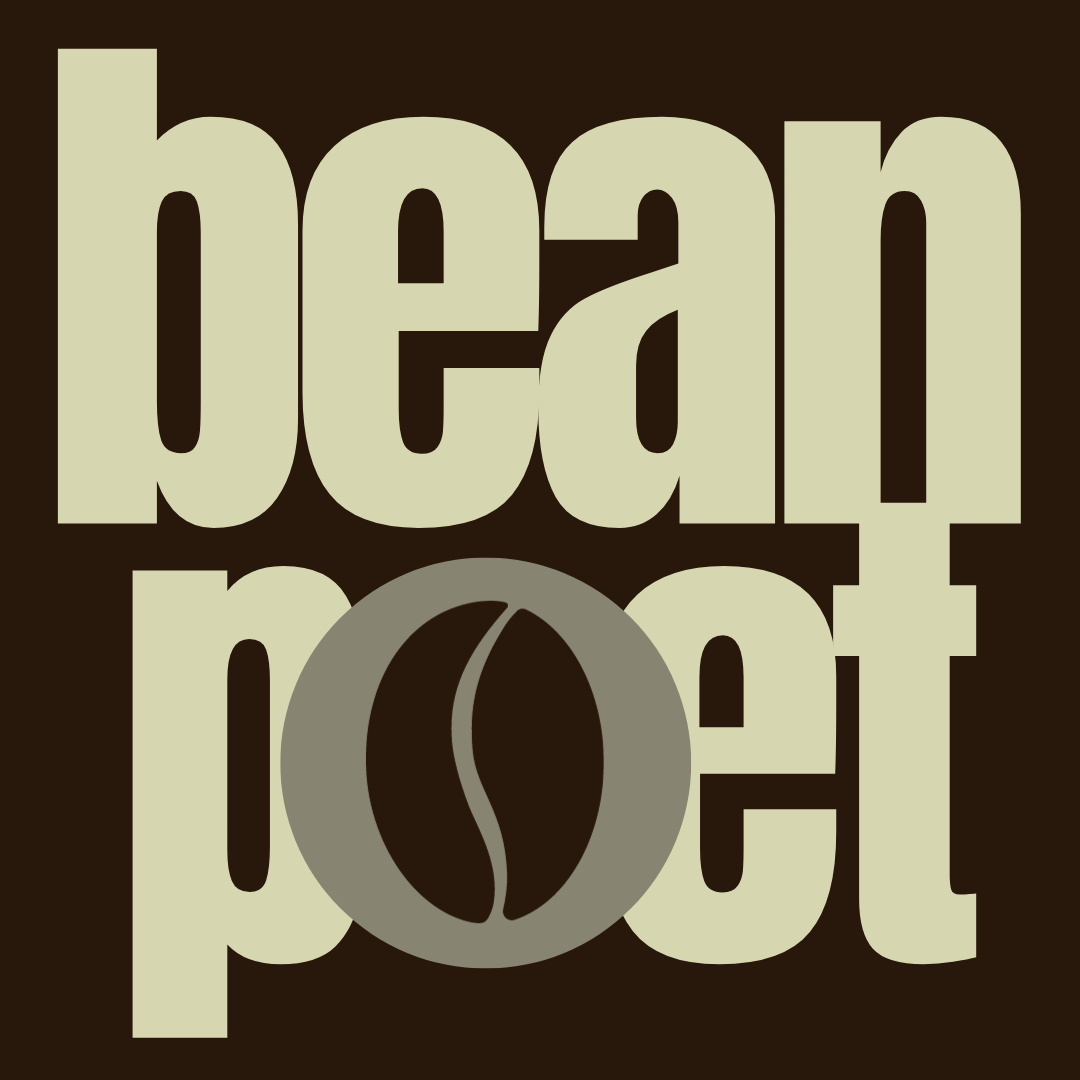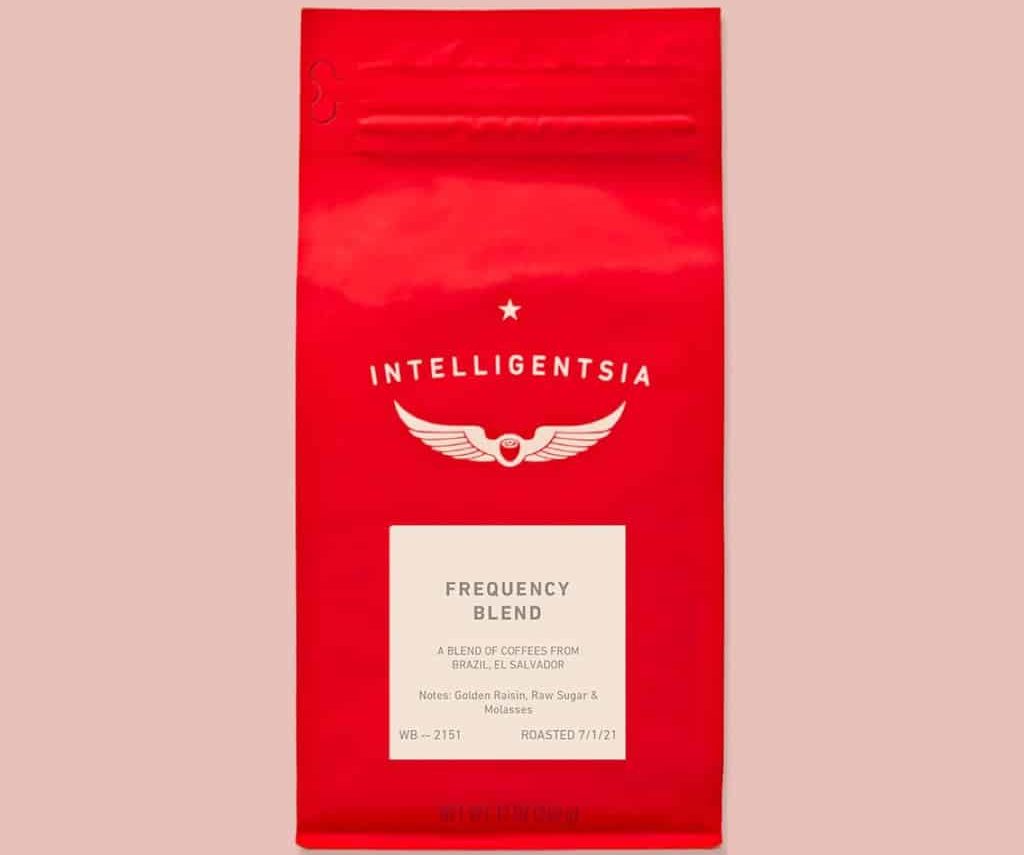Just so you know, as an Amazon Associate we earn from qualifying purchases made via bold red links, buttons or images.
Last Updated on December 15, 2023
A French press is a time-honored coffee brewing device. Also known as a cafetière or a coffee plunger, the French press coffee maker has been around since the late 1920s and uses mechanical force and gravity rather than electronics to extract the flavor from the ground coffee beans.
Although this device is a favorite among many coffee enthusiasts, the cup of coffee your French press produces is only as good as the ground coffee beans you put into it. That’s why we’ve scoured the markets to find our favorite seven brands and blends of coffee to use in your French press for a delicious coffee brew.
Top 3 Coffees for French Press at a Glance
What To Look For in Coffee for a French Press
When looking for good French press coffee, the best thing to start with is the beans. Coffee beans (as opposed to pre-ground coffee) are an essential component of a good French press coffee experience. Coffee beans that are ground well before the coffee is prepared get exposed to oxygen that causes the coffee grounds to grow stale and lose flavor. Therefore, for the best cup of coffee, you want to coarse grind your beans (coarse-ground coffee is ideal) right before it’s time to brew.
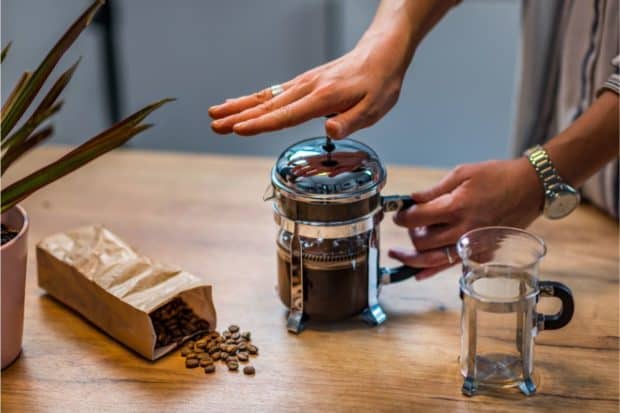
We also prefer getting beans directly from the roaster as opposed to a coffee shop or grocery store. This helps ensure you get the freshest possible beans. However, not all coffee beans are created alike. To find the beans that will give you the best bold flavors, consider the following factors. . . .
Beans From Different Coffee-Growing Regions Have Different Flavor Profiles
Much like the taste of wine is influenced by the weather and soil conditions where the grapes are grown, coffee beans take some of their flavor from the spot where they are planted. For example, the following regions yield these flavor profiles:
- Ethiopia: high acidity level with hints of lime and berries
- Kenya: hints of apple, raspberry, and black currant
- Indonesia: full-bodied earthy flavor with hints of flavors of chocolate
- Brazil: low acidity level with hints of chocolate and hazelnut
- Central America (Guatemala and Costa Rica): notes of chocolate, nuts, and fruit
- Colombia and Peru: medium-bodied taste with hints of spice and dark chocolate
The geographic location you choose is a matter of personal preference. You’ll find staunch supporters for beans from all of these regions. But stronger, dark roast coffees tend to work best with the French press method. We’ll talk about that more below.
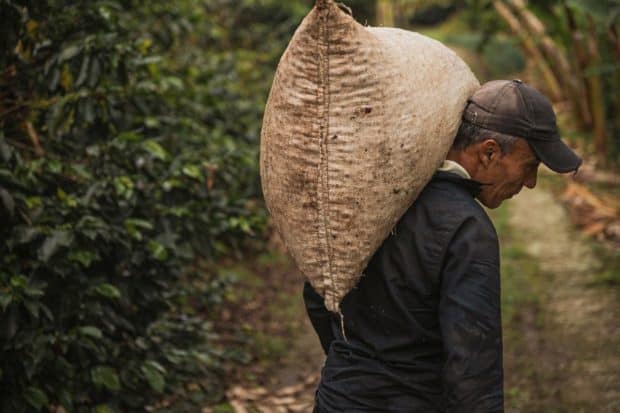
Light Roast vs. Dark Roast Coffee
Another consideration when choosing the best coffee for your French press is whether you want a lighter roast or a dark roast coffee. While this is somewhat a matter of personal taste, a medium or dark roast coffee works best with French presses and requires less finesse from the barista. However, we suggest staying away from the darkest coffees—the ones in the espresso spectrum. These can turn somewhat bitter in a French press.
Single-Origin vs. Blended Coffee
Single-origin coffees have become the rage in recent years. These coffees, as the name implies, feature beans that were all grown in a specific location. Blends, on the other hand, combine beans from several different locations. Blends are usually less expensive and can be just as tasty as single-origin beans, albeit without the snob appeal. Blends use less exciting beans as filter, adding some spectacular beans to give the coffee its flavor pop.
Arabica vs. Robusta
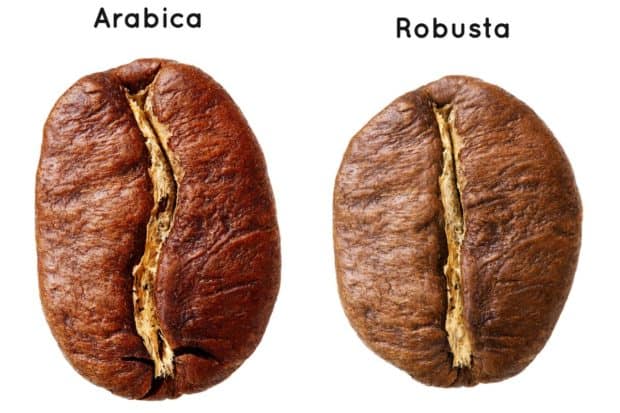
Another consideration when choosing coffee beans is the type of bean. Basically, there are two classifications of coffee beans: arabica and robusta. Robusta beans are pollinated by bees and other animals. They are generally less expensive than arabica beans, which are self-pollinated. Most coffee enthusiasts feel that arabica beans generally yield a superior cup of coffee.
Arabica coffee plants trace their origin to Ethiopia and Yemen, from which the plants get their “Arabic” coffee name. Today, arabica are grown all over the world and have lessened somewhat in Ethiopia.
Robusta coffee plants originated in Central Africa.
Organic or Not?
Similar to lettuce, apples, and other produce, some types of coffee beans are grown using organic farming methods. This means that the beans are grown without using pesticides, fungicides, or synthetic fertilizers. A subset of organic coffee, called specialty grade coffee, is even rigorously tested for mold and mycotoxins. Organic coffee is, by most accounts, healthier than non-organic coffee.
Sustainable or Not?
Sustainability is where politics and environmentalism intersect with your morning cup of coffee. Coffee farmers in South America in particular are some of the worst offenders when it comes to clearing rain forest to create new coffee fields. Sustainable coffee goes beyond organic and includes certifications for fair trade and as part of the Rain Forest Alliance.
In 2016, approximately one-third of the world’s coffee came from a grower with at least one sustainable certification. While sustainability doesn’t directly affect the taste of your morning coffee, it’s a good thing to consider when purchasing your fresh coffee beans.
The Best Coffee Brands To Use With a French Press
So, where do you find these quality beans from the regions you prefer? The good news is that it’s easier than you may think. There are a myriad of online coffee purveyors and subscriptions that will bring the coffee you love right to your doorstep. The difficult part is sifting through all of the choices. We’ve made that easier for you by profiling our seven favorites below.
1. Blue Bottle Coffee Organic “Three Africas” Blend
https://m.media-amazon.com/images/I/31ruOvCJ2XL._SL500_.jpg
Check availability
This organic coffee combines beans from three different African growing regions, including Ethiopia. This dark roast coffee blend has hints of chocolate in its flavor profile and makes a great introduction to full-bodied African coffee blends.
Blue Bottle Coffee, founded in 2017 in Oakland, CA, is committed to offering organic, single-origin coffees.
The Organic “Three Africas” blend is available online as well as at any of the company’s 99 stores in the US and abroad.
2. Caffe Vita Bistro Blend
https://m.media-amazon.com/images/I/41YMePybHdL._SL500_.jpg
Check availability
This blend combines medium and dark roast beans that hail from Indonesia, East Africa, and South America to create an outstanding coffee that is robust and full-bodied without being too intense. Reviewers report that this coffee blend is ideal as a morning beverage and offers caramel notes and subtle hints of baking chocolate and almonds.
Caffe Vita was founded in 1995 in Seattle’s Queen Anne district and is considered part of the “third wave” coffee movement. The company is a pioneer in the Farm Direct coffee movement, carefully sourcing coffee from more than a dozen countries and forging long-term relationships with individual growers. Caffe Vita has been named one of the top 10 places to drink coffee in the US by several magazines and newspapers.
Caffe Vita Bistro Blend is available from any of the company’s 13 coffee stores, from the company online, or from Amazon.
3. Intelligentsia Coffee Frequency Blend
https://m.media-amazon.com/images/I/41W1g1Ti6XL._SL500_.jpg
Check availability
Intelligentsia’s Frequency Blend is a great all-purpose coffee that easily makes the transition from morning to evening. It’s made from single-origin Brazilian coffee beans and is a smooth, very drinkable coffee with little bitterness, even when prepared in a French press. The flavor profile of this coffee blend includes notes of chocolate and molasses.
Chicago-based Intelligentsia Coffee was founded in 1995 and is considered a major part of the “third wave” coffee movement toward making quality coffees accessible. A controlling interest in the company was acquired by Peet’s Coffee in 2005.
Intelligentsia Coffee Frequency Blend is available online and at any of the company’s 15 US coffee stores.
4. Stone Street Colombian Cold Brew Supremo
https://m.media-amazon.com/images/I/41JIMfydhIL._SL500_.jpg
Check availability
Stone Street Colombian Cold Brew Supremo is a single-origin arabica coffee. These dark-roast beans yield a complex flavor profile with nutty and chocolate notes. It has a smooth yet bold taste and is a good choice for everyday drinking.
Stone Street Coffee Company opened in Brooklyn in 2011. The company uses 100% ethically sourced coffee beans and has earned the Organic, Fairtrade, and Rainforest Association certifications.
Stone Street Colombian Cold Brew Supremo coffee is available at Stone Street’s coffee cafes in Brooklyn, NY, and West Hollywood, CA, from the company online, or from Amazon.
5. Bulletproof Coffee French Kick
https://m.media-amazon.com/images/I/41fr5le1egL._SL500_.jpg
Check availability
These slightly acidic, strong coffee beans are perfect for the person who enjoys a powerful cup of coffee. This balanced dark roast blend has a coffee flavor profile that includes hints of smoke and dark chocolate. Not only is this amazing coffee organic, but the beans are tested to ensure there is no fungal contamination.
Founded in 2011, Bulletproof Coffee and now Bulletproof foods offer a line of healthy food and beverage products that are designed to “power your mind, fuel your body and help unleash your limitless potential,” according to the company’s website.
Bulletproof Coffee French Kick is available via Bulletproof as a single order or subscription or on Amazon.
6. Peet’s Coffee Major Dickason’s Blend
https://m.media-amazon.com/images/I/41yMWJAswbL._SL500_.jpg
Check availability
This coffee blend from the popular San Francisco Bay-area coffee purveyor is a full-bodied, dark roast blend of coffee beans from Indonesia, Central America, and South America. Reviewers report that this blend, which is named after an early supporter of Peet’s Coffee, has earthy, spicy notes that combine with slight hints of citrus and berry.
We like the Major Dickason’s Blend for its affordable price and robust, full-bodied taste. This coffee blend holds up well with milk or cream, which tend to enhance the coffee’s chocolate notes. This coffee blend, which is the company’s bestseller, is available directly from Peet’s. (The company roasts and ships beans the same day they are ordered to help ensure freshness.) Peet’s coffees are also available in more than 14,000 upscale grocery and food stores in the United States.
Peet’s Coffee, founded in 1966, was a pioneer in bringing quality coffee to average Americans. The company now has 200 coffee shops nationwide, primarily on the West and East Coasts. The company opened the first LEED Gold Certified coffee roastery in the United States in 2007.
7. Atlas Coffee Club Subscription
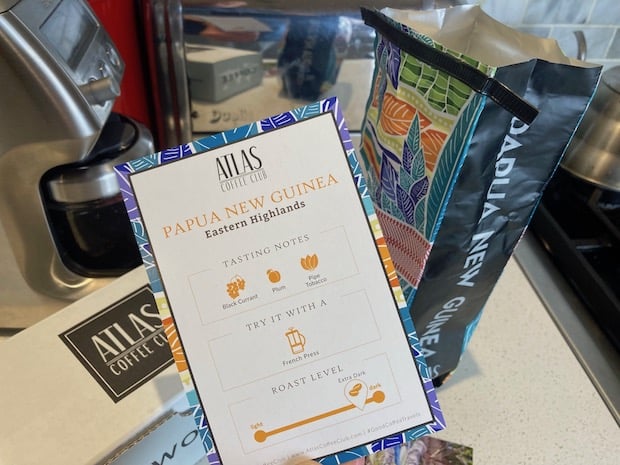
You can make sure you’re always enjoying fresh beans by using a coffee subscription service that delivers beans to your door every month. Atlas Coffee Club is a particularly fun service because they surprise you with a selection from a different country each month.
It’s perfect for creative and adventurous coffee drinkers. With this service, you can expect single-origin coffee from over 50 countries, including Costa Rica, Peru, Brazil, El Salvador, and Tanzania.
Within a day of roasting the coffee, they put it into a little box with a postcard from the country of origin, and another little card that describes the coffee and how you can get the most out of it. Then they ship it to you. The next month, you get something totally different.
Sign up for a subscription and let them surprise you.
It’s All in the Beans
Brewing perfect coffee in your French press doesn’t have to be a hit-or-miss affair. Get the delicious brew you desire every time by choosing coffee beans with a flavor profile that meets your taste, opting for a medium or darker roast coffee or blend, choosing a coffee that’s grown using organic and sustainable farming and procurement methods, and stocking your pantry with one or more of our favorite coffee bean options.
